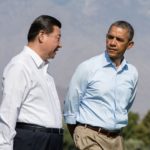
[IN CHINESE] Zhang Tuosheng discusses China’s national interests, especially China’s core interests as articul…

[IN CHINESE] Zhang Tuosheng discusses China’s national interests, especially China’s core interests as articul…
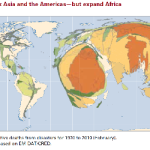
While contrasting the outcomes of two separate natural weather events in a rich and a poor country, namely the US and India, Nikhil Desai writes that “the poor suffer the climate whether or not it changes, whether the change is natural or anthropogenic, and whether or not their or anybody else’s greenhouse gas emissions are reduced or constrained. The rich countries – and the rich among the poor countries – enjoy a physical and service infrastructure, and insurance protections, that sharply limits their physical vulnerability to climate….It is not necessary to “combat global warming”; the first business at hand is to curb climate vulnerabilities.”
Nikhil Desai is the Energy Security contributor for the NAPSNet Weekly report.

Chinese language post In this Policy Forum, Chen Jimin, rhetorically asks, “how should we understand Si…
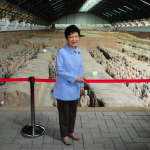
In this Policy Forum Roger Cavazos explores the definition of ‘denuclearization’. He writes “Denuclearization …

This article describes the impressive, resilience-targeted greening of Japan, evident in nationwide deployments of renewable energy, radical efficiency, and other core aspects of sustainability. These developments are already underway, and include public- and private-sector actors as well as community groups. The greening also has promising stamina due to being increasingly deeply inscribed in the fiscal, regulatory and other mechanisms of a rapidly emergent industrial policy.
Andrew DeWit is Professor in the School of Policy Studies at Rikkyo University and an Asia-Pacific Journal coordinator. With Iida Tetsunari and Kaneko Masaru, he is coauthor of “Fukushima and the Political Economy of Power Policy in Japan,” in Jeff Kingston (ed.) Natural Disaster and Nuclear Crisis in Japan.
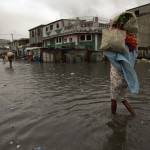
Saleem Janjua writes “For developing-country local governments to start any climate adaptation actions, it is important to secure a high level commitment from local leaders….Once the vision for climate adaptation action in local governments is formulated by the political and public-sector local leadership and understood by the staff as well, strategies to adapt to climate change can then be developed easily.”
Saleem Janjua is the Climate Change Adpation contributor to the NAPSNet Weekly Report, and the Editor of AdaptNet.
The views expressed in this report d
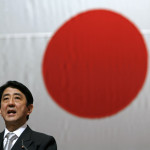
Tessa Morris-Suzuki writes ‘in recent months sections of the media in Japan, and even internationally, have gone into overdrive to sell the message that Japanese Prime Minister Shinzo Abe is not a nationalist.
‘Those who care about the future of Japanese society should not allow the dazzle of verbal juggling to induce a political version of the Gruen Transfer. The prime minister’s ideology may be re-branded for the global market, but the old adage remains: buyer beware.’
Tessa Morris-Suzuki is a historian of modern Japan and Korea. She is Professor in the School of Culture, History and Language, College of Asia and the Pacific, the Australian National University.